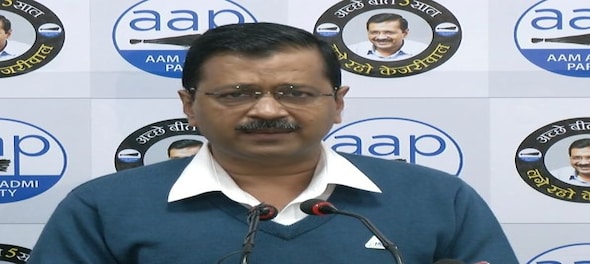
Arvind Kejriwal-led Aam Aadmi Party (AAP) is looking to return to power again in the Delhi elections on February 8. Birthed in politics by riding the wave of a major anti-graft agitation in 2012, AAP finally stamped its domination on Delhi’s electoral landscape in the February 2015 polls.
In that election, the party swept 67 of the 70 assembly seats. The victory was also significant because it came just months after the BJP came to power at the centre riding on the popularity of Prime Minister Narendra Modi.
The BJP won all parliamentary seats in Delhi. In some ways, it is the elections present an unfamiliar terrain for AAP as it faces what is known in politics as the anti-incumbency factor, which has proved to be the bane of several political parties at the hustings.
Here’s a SWOT (Strength, Weakness, Opportunity, Threat) analysis of the AAP ahead of the February 8 assembly elections in Delhi:
Strength
The AAP released its report card "AAP ka Report Card” late last month, sounding confident that it will repeat its electoral performance in the upcoming Delhi assembly polls. The party’s Delhi convener Gopal Rai said the party “received a positive response” from the people.
The AAP has also launched a massive outreach exercise to showcase its achievements in school reforms, improved electricity, water and health services, notably through mohalla clinics.
CM Kejriwal has led from the front, addressing seven town hall meetings in each parliamentary constituency. The party also looks battle prepared with regular Mohalla Sabhas. In fact, Rai said they have already finished 650 of the 700 such planned meetings.
To support the AAP government’s claims on school reforms front, at least three Delhi government schools have made it to a list of top 10 institutions in countrywide rankings.
Released last week by an education portal, Education World, in the 'Indian School Ranking 2019, ' the Rajkiya Pratibha Vikas Vidyalaya (RPVV), Sector 10, Dwarka has been ranked No. 1 among all government-run day schools in the country, while two others have made it to the top 10.
Weakness
Despite the AAP government’s report card and massive outreach program, the fact is it has failed to win both the local level and Lok Sabha elections since 2015. PM Modi-led Bharatiya Janata Party (BJP) again clinched all seven parliamentary seats at stake. The Congress was the runner-up, with AAP reduced to a third player.
Yet another weakness that AAP faces is that it no longer retains 'the new kid on the block' charm. It is also not free of blemish. The party has been embroiled in a series of controversies with its legislator's name surfacing in several.
Moreover, the concentration of power within AAP around a small coterie of leaders around CM Kejriwal coupled with high-profile exits such as lawyer-turned-social activist Prashant Bhushan and political expert Yogendra Yadav cast a shadow on the party’s claim as different from the rivals.
Opportunity
The AAP can capitalise well on being a party focused on the development of the national capital instead of a pan-India focus of the BJP or the Congress. A key electoral plank of the party is the demand for greater autonomy of Delhi. Moreover, the prospects of both the national parties are glum for now, particularly the BJP when it comes to state elections.
Despite PM Modi’s national appeal, the BJP has lost a series of state-level elections in Madhya Pradesh, Rajasthan, Chhattisgarh, Punjab and Jharkhand or failed to form the government in Maharashtra. Moreover, the party lacks a credible and popular face to take on Arvind Kejriwal. The Congress too has not been able to nurture a leader in the league of Sheila Dikshit who could mobilise its cadre and provide a state-level vision.
Threat
The distribution of tickets could be a tricky part as the AAP is examining the performance of its sitting MLAs. In the 2015 polls, the AAP bagged 67 of 70 seats but since then it has disqualified five of its MLAs. While Anil Kumar Bajpai, Col. Devinder Sehrawat and Kapil Mishra were disqualified for their association with the BJP, Sandeep Kumar was disqualified for having connections with the BSP and Alka Lamba was disqualified after she joined the Congress.
First Published: Jan 11, 2020 1:11 PM IST
Check out our in-depth Market Coverage, Business News & get real-time Stock Market Updates on CNBC-TV18. Also, Watch our channels CNBC-TV18, CNBC Awaaz and CNBC Bajar Live on-the-go!


Telangana CM violated poll code, defer Rythu Bharosa payment, says Election Commission
May 7, 2024 9:01 PM
Lok Sabha Election 2024: How Indian political parties are leveraging AI
May 7, 2024 6:59 PM

